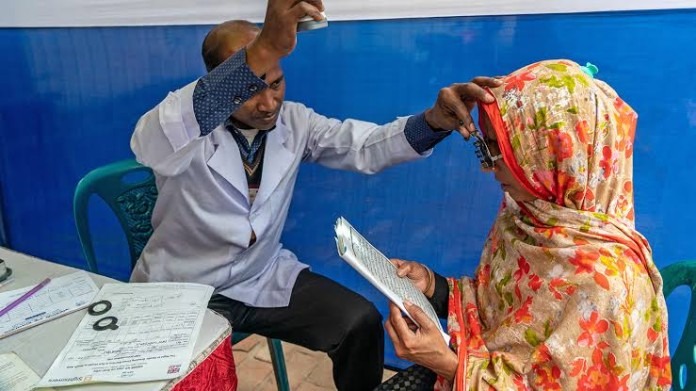By Palma Ileye
International Development Organization, Sightsavers has disclosed that in Nigeria, and worldwide, women and girls face inequalities that increase their risk of disease, disability, gender-based violence, and mortality.
Saying that, “And for many women, getting their health issues addressed is at the bottom of a long list of challenges and priorities.”
In a press release issued by Sightsavers Nigeria, Communication Associate, Joy Tarbo this International Women’s Day, Wednesday 8 March, International Development Organisation, Sightsavers has called for all health services to be inclusive and accessible for women and girls, including those with disabilities.
Sightsavers said it was also celebrating the women who were fighting to make this happen.
“One of these is Omosefe Osinoiki, a research associate at Sightsavers Nigeria, who is leading the research into Female Genital Schistosomiasis, FGS, in the country. An estimated 56 million women suffer from this chronically underdiagnosed disease that causes severe pain and infertility, with Nigeria contributing the biggest burden.
“It significantly impacts women’s reproductive health, but the current lack of information about the prevalence and consequences of the disease in Nigeria is hindering effective prevention and treatment strategies but Omosefe is leading the way in helping women get access to the basic information they need,” Sightsavers said.
Omosefe Osinoiki, said: “Investing in women’s health is a strategic move towards society’s wellbeing. It creates a ripple effect that elevates their community. When women are empowered, in their education as well as their health, they are able to sustainably take care of their families, both physically and otherwise. It’s important, useful and it will be meaningful for the communities that we work in, whether it’s for neglected tropical diseases, inclusive health, inclusive education, whatever it is that we do in the communities that we work in, it’s important that we involve and expand our reach to deepen community engagement and also advocate for policy changes that will prioritise women’s health.”
Also, Dr Joy Shu’aibu, Country Director Sightsavers said, “As we mark International Women’s Day, we stand committed to addressing the urgent health needs of women and girls worldwide. Through our work in Nigeria, we are dedicated to combating female genital schistosomiasis, ensuring that no woman or girl suffers in silence. Together, we can break barriers, empower women, and build a healthier, more equitable future for all.”
Sightsavers stated that it was working with partners to improve access to health services for all, including women and people with disabilities, such as treatments to protect against neglected tropical diseases and sight-restoring operations. Sightsavers also works to ensure women have access to information on health issues such as reducing disease transmission and maternal and newborn health services.
Adding that, since Sightsavers began, the organisation has helped 70,000 women to access treatment for trachoma; helped protect 560 million women from devastating diseases including schistosomiasis and fought for access to sexual and reproductive health services women and girls with disabilities in eight countries.







